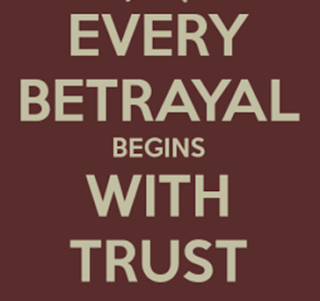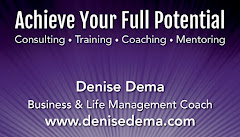"Humility is about being content to let others
discover the layers of our talents, without having to boast about them."
Words have enormous power. They can make us erupt into
laughter or bring tears to our eyes. They can influence, inspire, manipulate
and shock. They can build and destroy.
Some words have different effects on different people.
One such word is humility. It is one of those words that are seldom in neutral
gear. Some love the word and all it stands for. Some almost fear it
and interpret it synonymous with lack of self-confidence or timidity.
The
dictionary defines humility as modesty, lacking pretense, not believing
that you are superior to others. An ancillary definition
includes: "Having a lowly opinion of oneself, meekness". The word
"humility" in the context of leadership Jim
Collins mentioned it in his seminal work Good to Great: Why Some
Companies Make
the Leap... and Others Don't. In this book, Collins examined companies
that
went from good to great by sustaining 15-year cumulative stock returns
at or
below the general stock market, and after a transition point, cumulative
returns at least three times the market over the next 15 years.
Among the many characteristics that distinguished these
companies from others is that they all had a Level 5
leader.
Level 5 leaders direct their ego away from themselves
to the larger goal of leading their company to greatness. These leaders are a
complex, paradoxical mix of intense professional will and extreme personal
humility. They will create superb results but shun public adulation, and are
never boastful. They are described as modest. An example of such a leader who
epitomized humility is David Packard, the co-founder of Hewlett-Packard, who,
in Jim Collins' words, defined himself as a HP man first and a CEO second. He
was a man of the people, practicing management by walking around. Shunning all
manner of publicity, Packard is quoted as saying: "You shouldn't gloat
about anything you've done; you ought to keep going and find something better
to do."
Another great leader is Patrick Daniel, CEO of North
American energy and pipeline company Enbridge, who espouses two leadership
attributes: determination to create results and humility, shifting the focus
away from himself and continually recognizing the contributions of others.
"I have learned through the lives of great leaders," he said,
"that greatness comes from humility and being at times,
self-effacing."
Clearly these leaders, and many others like them, don't
espouse the meaning of humility as "meek". On the contrary, it is a
source of their strength. But the notion of being self-effacing is one that we
struggle with in our competitive culture, prescribing that we take every
opportunity to toot our own horn, and that we don't dare leave the house without
our dynamic elevator speech all rehearsed.
We often confuse humility with timidity. Humility is not
clothing ourselves in an attitude of self-abasement or self-denigration.
Humility is all about maintaining our pride about who we are, about our
achievements, about our worth – but without arrogance – it is the antithesis of
hubris, that excessive, arrogant pride which often leads to the derailment of
some corporate heroes, as it does with the downfall of the tragic hero in Greek
drama. It's about a quiet confidence without the need for a meretricious
selling of our wares. It's about being content to let others discover the
layers of our talents without having to boast about them. It's a lack of
arrogance, not a lack of aggressiveness in the pursuit of achievement.
An interesting dichotomy is that, often, the higher
people rise, the more they have accomplished, the higher the humility index.
Those who achieve the most brag the least, and the more secure they are in
themselves, the more humble they are. "True merit, like a river, the
deeper it is, the less noise it makes". (Edward Frederick Halifax). We
have all come across people like that and feel admiration for them.
There is also an understated humility of every day people
we work with who have the ability to get the job done without drawing attention
to themselves. Witness the employee who is working at his computer into the
late hours, purely motivated by a keen sense of duty, the executive assistant
who stays after 5:30pm on a Friday night in an empty office to await a courier,
or the manager who quietly cancels an important personal event to fly out of
town to attend to the company's business. This is akin to the philanthropist
who gives an anonymous donation.
Humility is also a meta-virtue. It crosses into an array
of principles. For example, we can safely declare that there cannot be
authenticity without humility. Why? Because, there is always a time in a
leader's journey when one will be in a situation of not having all the answers.
Admitting this and seeking others' input requires some humility.
Another mark of a leader who practices humility is his or
her treatment of others. Such leaders treat everyone with respect regardless of
position. Years ago, I came across this reference: the sign of a gentleman is
how he treats those who can be of absolutely no use to him.
Something interesting happens, too, when we approach
situations from a perspective of humility: it opens us up to possibilities, as
we choose open-mindedness and curiosity over protecting our point of view. We
spend more time in that wonderful space of the beginner's mind, willing to
learn from what others have to offer. We move away from pushing into allowing,
from insecure to secure, from seeking approval to seeking enlightenment. We
forget about being perfect and we enjoy being in the moment.
Here are a few suggestions on practicing humility:
- There
are times when swallowing one's pride is particularly difficult and any
intentions of humility fly out the window, as we get engaged in a contest
of perfection, each side seeking to look good. If you find yourself in
such no-win situations, consider developing some strategies to ensure that
the circumstances don't lead you to lose your grace. Try this sometimes:
just stop talking and allow the other person to be in the limelight. There
is something very liberating in this strategy.
- Here
are three magical words that will produce more peace of mind than a week
at an expensive retreat: "You are right."
- Catch
yourself if you benignly slip into over preaching or coaching without
permission – is zeal to impose your point of view overtaking discretion?
Is your correction of others reflective of your own needs?
- Seek
others' input on how you are showing up in your leadership path. Ask:
"How am I doing?" It takes humility to ask such a question. And
even more humility to consider the answer.
- Encourage
the practice of humility in your company through your own example: every
time you share credit for successes with others, you reinforce the ethos
for your constituents. Consider mentoring or coaching emerging leaders on
this key attribute of leadership.
There are many benefits to practicing humility, to being
in a state of non-pretence: it improves relationships across all levels, it
reduces anxiety, it encourages more openness and paradoxically, it enhances
one's self-confidence. It opens a window to a higher self. For me, it replaces
"windowsill" as the most beautiful word in the English language.
Content by Bruna
Martinuzzi.















